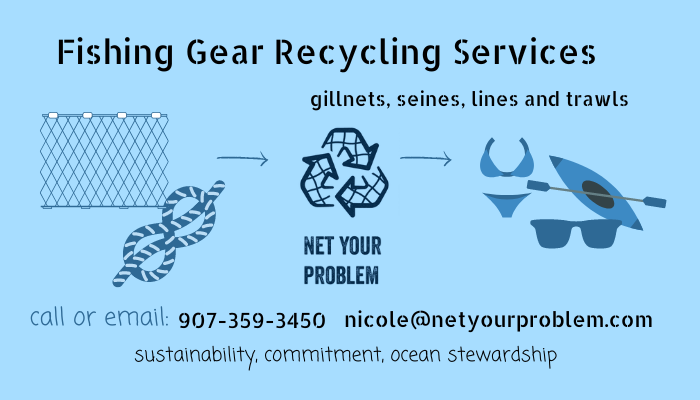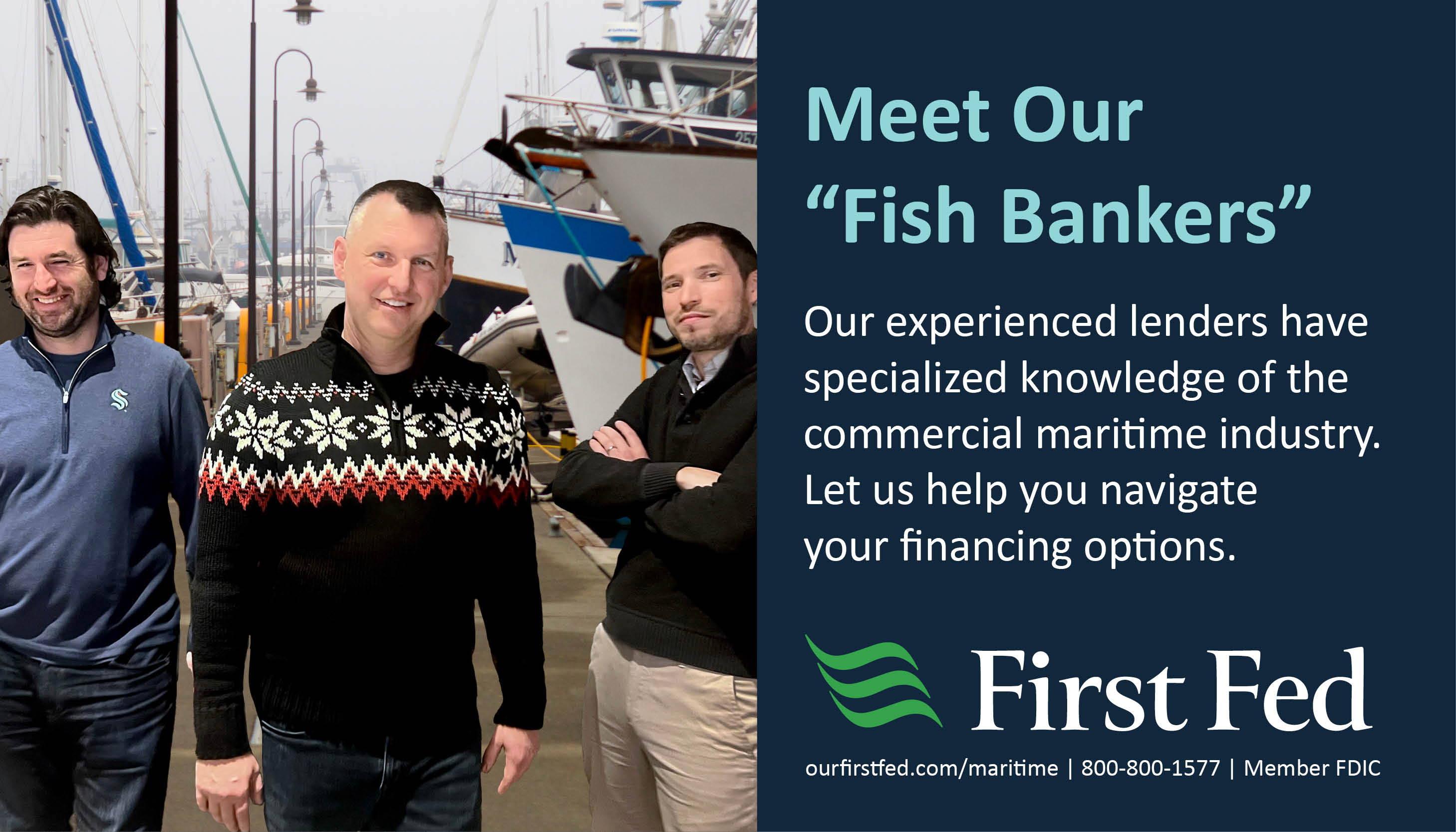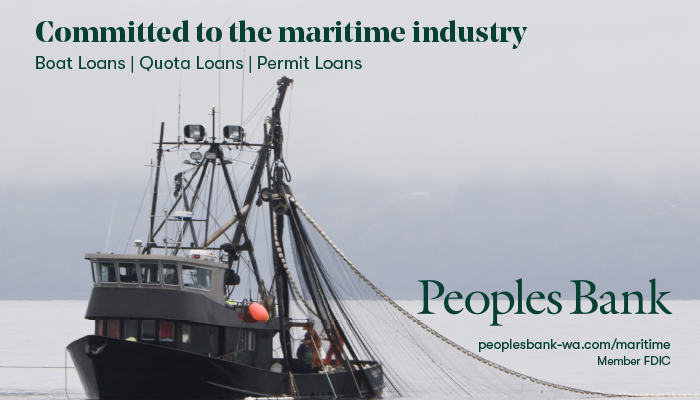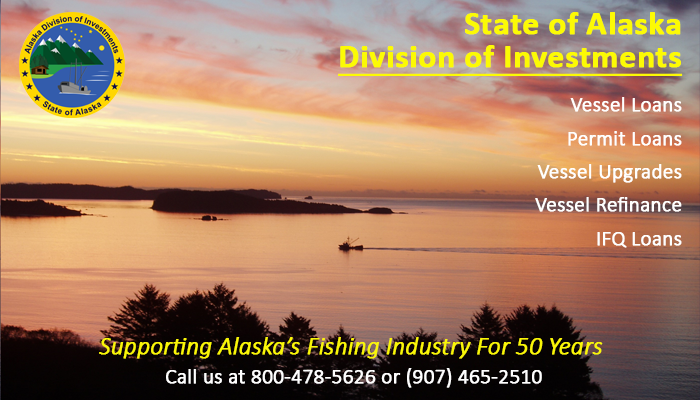Fish Factor by Laine Welch
February 13, 2021
Fishermen must wear masks while they are underway, even while sleeping, and the Coast Guard intends to enforce it.
That’s an edict issued as a public health emergency by the Center for Disease Control in a Marine Safety Bulletin issued on Feb. 1. It requires the wearing of masks at all times in U.S. waters on all commercial vessels “when boarding, disembarking, and for the duration of travel” to prevent the spread of the Covid-19 virus.
The action states that “conveyance operators traveling into or within the U.S. may transport only persons wearing masks and must use best efforts to ensure that masks are worn.”
Best efforts include allowing entry to a vessel only to those who wear masks, instructing persons that failure to comply constitutes a violation of federal law, and removing any person who refuses to comply.
Exemptions apply to children under 2 years, a person with a disability who cannot safely wear a mask or a person for whom wearing a mask would create a risk to workplace health, safety or job duty, or if an operator is “the sole occupant of the vehicle.”
Exceptions to the rule apply while eating or drinking, or communicating with a hearing-impaired person or if a person is unconscious.
National Fisherman editor Jessica Hathaway was the first to break the news on February 11, and said she was advised by the Coast Guard that fishing vessels are included under the rule “at this time.” When she requested further guidance, Hathaway was directed to the CDC.
“Enforcing this rule would certainly be difficult,” Hathaway wrote. “However, it clearly opens the door for being boarded and fined. The Coast Guard has clarified that the rule will be enforced.”
The mask requirement will remain in effect “unless modified or rescinded based on specific public health or other considerations, or until the Secretary of Health and Human Services rescinds the determination.”
Fishermen and others can submit comments and questions via email at [email protected]/
Fish Board bumps -The state Board of Fisheries will meet online on March 8 to decide when, where and how to fit in a double slate of meetings upended by the Covid pandemic that spans from Southeast Alaska to the Arctic.
The Board would normally be wrapping up a roster of 275 proposals for Southeast, Prince William Sound and statewide shellfish next month. But those regions are likely to be bumped to next winter or mixed in with already scheduled meetings for other regions this fall.
“We currently have the work session in October and then that's followed immediately by a Pacific cod meeting, which is for the Alaska Peninsula, Aleutian Islands, Bering Sea and Chignik. So those are currently slated for this coming October,” said Glenn Haight, executive board director. “And Bristol Bay will happen in December. It's possible you could put in a Prince William Sound or Southeast meeting in November, and then continue on into January with some of the other ones. It's just a matter of putting things in the right places so people have a chance to react to them and we have time to do all the factors that go into it.”
The call for fishery proposals for Bristol Bay, the Alaska Peninsula, Chignik, the Arctic, Yukon, Kuskokwim and Bering Sea regions has been extended from April 10 to May 10.
“The board did not reopen the call for proposals for Southeast, Yakutat, Prince William Sound and shellfish statewide.” Haight explained. “So what we currently have for proposals is what the board will take up next year. There was a note though, that if there are some conservation issues or if there are other kinds of pressing matters, people from those regions can submit an agenda change request by August 23 and the board will review those requests at their October work session.”
Public comments for the special March 8 meeting are accepted through March 2.
Meanwhile, four of the seven Fish Board members, only one who hails from a coastal community, have yet to be confirmed by the Alaska legislature even as they are making decisions.
Frankenfish arrives - It’s taken nearly three decades but genetically tweaked salmon is set to hit supermarket shelves in a month or two.
The fish, dubbed Frankenfish, is the first animal to get approval from the U.S. Food and Drug Administration and is manmade from an Atlantic salmon with genes spliced from Chinook and an eel-like ocean pout. The faster growing fish can go from egg to 11 pounds in 18 months, 10 months faster than normal salmon.
Once the market normalizes after the Covid pandemic, Massachusetts-based AquaBounty Technologies plans to produce nearly 3 million pounds annually at its recirculating aquaculture system (RAS) facility in Indiana, the company told Undercurrent News. Another land-based farm is planned in the U.S. and a smaller farm at Prince Edward Island in Canada already is selling the genetically modified salmon there.
Push back to the manmade fish has been fierce, even before it was approved by the FDA in 2015, and it has steadily increased. Numerous polls over the years show that consumers simply don’t want it.
Recently, major foodservice supplier Aramark said it will boycott the gene-tampered fish, joining the ranks of Compass Group and Sodexo. Also, more than 80 retailers have said they won’t sell the salmon, including Costco, Walmart, Target, Albertsons, Kroger and Whole Foods.
Still, in other supermarket fish cases, consumers won’t be sure what they’re getting because no clear labeling will be required. Instead, the makers will be allowed to use bar codes on labels or provide 800-numbers that refer customers to more information.
The U.S. green light on genetically engineered salmon has opened the door for other creatures. At least 35 other species of fish— as well as chickens, pigs and cows engineered to fit in factory farming systems — are currently under development.
Meanwhile, Undercurrent reported that AquaBounty announced last week it has raised over $127 million in a public offering of stock that included 14,950,000 shares at a price to the public of $8.50 per share.
Fish info for all - One unexpected plus to the Covid pandemic is how it has brought fishing industry information, workshops and training to far more people through web-based events, no matter where they are located.
Two are in the upcoming pipeline: Up first is the annual Fishermen’s Expo on Monday, February 22 hosted by the Alaska Longline Fishermen’s Association in Sitka.
“We're going to focus more on loan programs for folks that are interested in getting involved in fishing. We have a speaker from the Commercial Fishing and Agriculture Bank that provides financing for fishermen, and we’ll also have a loan officer from the Department of Commerce, Community, and Economic Development to talk about some of the loan programs that they have for commercial fishermen,” said Natalie Sattler, ALFA communications director.
Emergency skills will be featured by the Alaska Marine Safety Education Association along with ALFA’s crew apprentice program. Also, updates on years of local ocean floor mapping, called bathymetry, that helps fishermen target catches better and avoid harmful fishing practices.
Go to www.alfafish.org to register for the Expo links and updates.
Then, on March 4th and 5th, a who’s who of big names is in the lineup for the Southwest Alaska Municipal Conference.
It will feature mariculture, regional broadband, fish forecasts, marketing updates, legislative leaders and commissioners, Senator Lisa Murkowski, Covid relief programs, community roundtables and much more. Find links to register for the SWAMC Summit at www.swamc.org/
Topics at both virtual events will appeal to anyone interested in Alaska’s seafood industry as well as those far removed from fishing.
Find more at www.alaskafishradio.com






